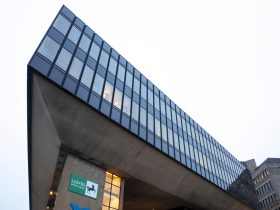Data on mortgage applications show the higher rates have made borrowers dormant but experts say that’s the wrong move if you’re looking to buy a home or refinance an existing home loan
According to new surveys, mortgage rates have spiked to their highest levels since at least last summer, if not more than a year. And, the rise is expected to continue.
The rebound in business activity is ensuring that mortgage rates will continue higher this year. For buyers and sellers, the shift will mean higher financing costs, says Danielle Hale, chief economist with Realtor.com.
Data on mortgage applications show the higher rates have made borrowers dormant — but experts say that’s the wrong move if you’re looking to buy a home or refinance an existing home loan, to cut your monthly mortgage payment.
Because today’s rates could look extremely cheap before long.
The average rate for a 30-year fixed mortgage crept up this week to 3.05%, according to the most recent edition of Freddie Mac’s 50-year-old survey.
Rates rose from an average of 3.02% last week and are now the highest they’ve been since July 2020, the government-sponsored mortgage giant reported Thursday.
Other surveys report even higher averages. Mortgage News Daily pegged the typical 30-year fixed-rate mortgage at 3.29% on Wednesday, up from 3.26% just a day before. The Mortgage Bankers Association’s average 30-year fixed rate is currently 3.23%.
If the current trend continues, it won’t be long until the last year’s worth of drops is erased. A year ago, 30-year rates averaged 3.36%, Freddie Mac says.
Rates are also slightly higher this week for other popular types of home loans.
The average for a 15-year fixed-rate mortgage rose modestly from 2.34% to 2.38% last week. These shorter-term home loans, which are a popular choice for refinancing, were averaging 2.77% at the same time last year.
The run-up in mortgage rates continues to cool demand for refinance applications, Joel Kan, the Mortgage Bankers Association’s associate vice president of economic and industry forecasting, said Wednesday. Volume fell 5% last week.
Activity declined last week for the fourth time in five weeks, Kan added.
Starter rates on 5/1 adjustable-rate mortgages, or ARMs, also rose this week, jumping from 2.73% to 2.77%. A year ago, ARMs stood at 3.01% on average.
That’s a move Sam Khater, Freddie Mac’s chief economist, thinks homeowners should still consider.
Even as rates rise modestly, the housing market remains healthy on the cusp of spring homebuying season, Khater says. Homebuyer demand is strong and, for homeowners who have not refinanced but are looking to do so, they have not yet lost the opportunity.







Leave a Reply